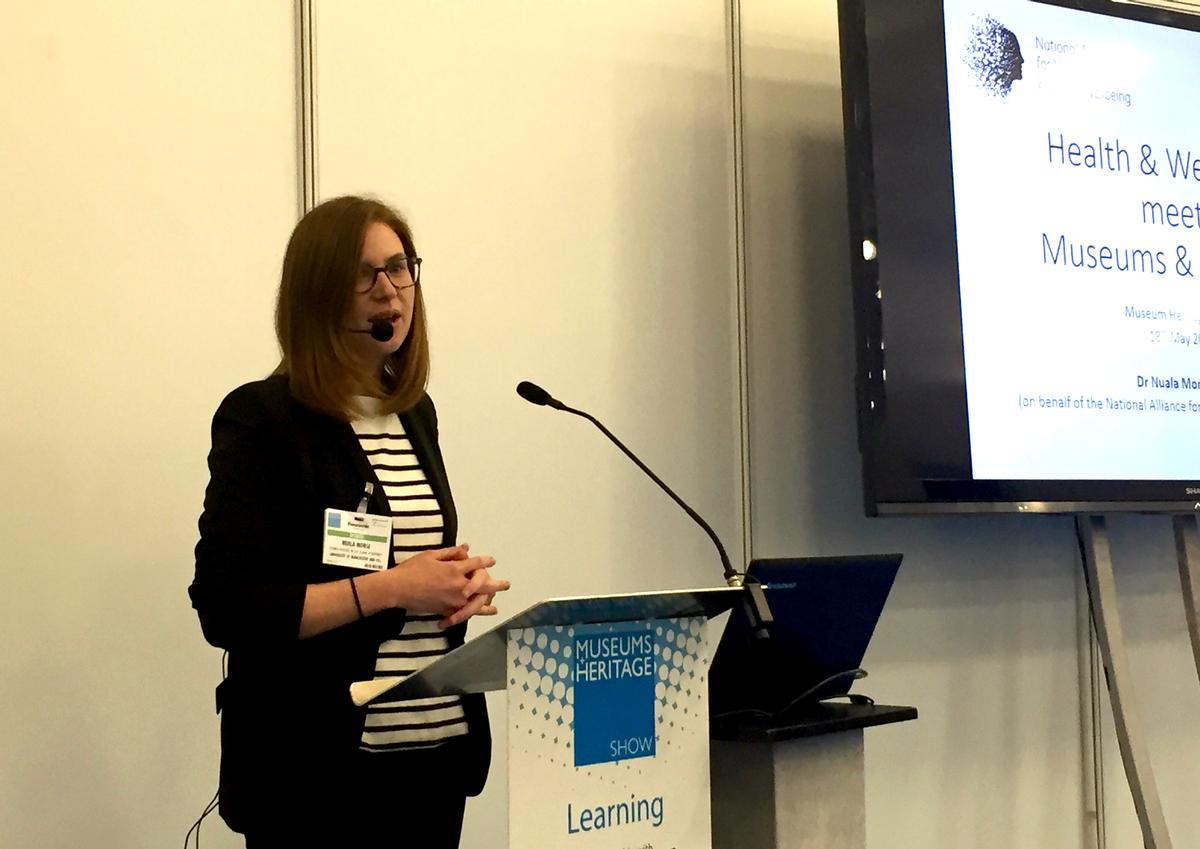see all jobs
Museums and Heritage Show: Engage in social change by adopting wellness into museum policy
Dr Nuala Morse, postdoctoral research associate at the University of Manchester and UCL, has said more museums need to adopt the idea of wellbeing into their programming as society’s attitude towards wellness starts to shift.
Speaking at the Museums and Heritage show in London, Morse shared the results of a study carried out by the National Alliance for Museums, Health and Wellbeing, which looked at health and wellbeing activities being carried out by museums across the UK.
Preliminary reports from the mapping exercise, which took place between September 2015 and February 2016, yielded 603 results from 261 museums, including one-off events, and short-term and long-term projects related to health and wellbeing. Within these activities, a wide range of audiences are represented from older adults and mental health problems, to people with stroke, cancer or brain injuries.Two thirds of activities uncovered during the scoping exercise were aimed at older adults, people living with dementia, and people with mental health issues.
“The range and scope of this work reflects wider shifts in thinking about health as wellbeing more generally,” said Morse. “This means thinking about wellness as not just the absence of ill health, but a holistic approach where health and wellbeing are connected, and include physical, emotional and social wellbeing.”
Morse added that with a wider shift in social attitude, the broader wellbeing category being addressed more often, with institutions offering related public programming such as health walks or mindfulness sessions in a museum setting.
“Museums are well placed to support wellbeing outcomes due to their unique multi-sensory environments, which can support a range of learning styles,” she said. “Museum projects are at the heart of connecting learning and wellbeing. There is a significant body of research which demonstrates the benefits of touch and object handling for wellbeing. People experience greater gains from types of learning that engage you in activities for what have been described as moments of “flow” – complete and utter absorption. In our own research, we found a museum environment provides exactly that kind of absorption and flow.”
Concluding her talk, Morse said that museums not already involved in wellness-focused programming should start to look at adopting it and engaging in driving wellness through a museum setting for public benefit.
“Health and wellbeing are part of a much wider social trend and a large-scale shift that we’re seeing, which is about moving from ideas of illness to ideas of wellness,” she said. “It’s certainly not a passing concern, but a central issue for communities at a time where our population is ageing, where more people have long-term conditions – both physical and mental – and where inequalities of health persist across the country. The strong argument is for museums to engage in this social change.”
More News
- News by sector (all)
- All news
- Fitness
- Personal trainer
- Sport
- Spa
- Swimming
- Hospitality
- Entertainment & Gaming
- Commercial Leisure
- Property
- Architecture
- Design
- Tourism
- Travel
- Attractions
- Theme & Water Parks
- Arts & Culture
- Heritage & Museums
- Parks & Countryside
- Sales & Marketing
- Public Sector
- Training
- People
- Executive
- Apprenticeships
- Suppliers
















































